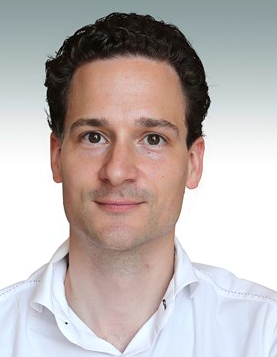DR-132 ctDNA analysis to monitor response to neoadjuvant chemoradiation in esohageal cancer patients
“After treatment with a combination of chemotherapy and radiotherapy for esophageal cancer, the current standard treatment is to continue with resection. However, in circa 20% of patients, no vital tumor cells are found in the resection specimen. On the other side, circa 10% of patients develop metastases shortly after esophageal resection. These patients could have possibly been spared esophagus resection. A nation-wide study, initiated by the department of surgery of the Erasmus MC, is currently recruiting patients (the SANO study, PI prof. dr. van Lanschot) and aims to clarify the role of esophagus resection in patients with no radiological or pathological (on biopsy) evidence of disease after pre-operative chemoradiation. A rapidly developing minimally invasive method to improve detection of minimal amounts of tumor cells or fragments could help to identity those patients in whom true cure has been accomplished. Therefor, we are currently biobanking blood of the patients in the SANO trial to serially measure tumor DNA in the blood
To come to a comprehensive panel of genetic variants to be measured in the blood, we wish to incorporate the genetic variants found in the metastases of esophageal cancer patients, as these variants are expected to be the drivers of resistance to treatment and disease recurrence. Also, we want to explore the genetic characteristics of metastases of esophageal cancer.
Discovering new genetic variants in metasatses that have not been identified in primary tumors could lead to new therapeutic approaches. Optimizing the blood assay could lead to a new and minimally inavsive means to monitor tumor response.”
Bianca Mostert Erasmus MC The Netherlands
Terug naar nieuwsMeer nieuws

Virtuele rondleiding in ons laboratorium, van biopt tot patiëntrapport
Wat gebeurt er met je tumorweefsel en bloed als er een uitgebreide DNA-test op wordt uitgevoerd? Wat doet die complexe …

Grote winst te behalen met studies naar DNA-mutaties in lymfeklierkanker
21 januari 2019 Whole Genome Sequencing (WGS) wint terrein in de diagnostiek van solide tumoren. In de hematopathologie blijkt sequencing …

Nieuwe behandeloptie bij RET, maar nu de testen nog
De goedkeuring door het European Medicines Agency van selpercatinib als tweedelijns behandeling voor patiënten met gevorderd RET-positief niet-kleincellig longkanker biedt nieuw …

Er komen steeds meer oncologische geneesmiddelen beschikbaar die maar voor een klein deel van de patiënten geschikt zijn. Op dit moment vinden we die patiënten niet. Bij élke patiënt met uitgezaaide kanker zou uitgebreide genetische screening moeten plaatsvinden.